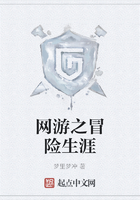THE tramp in Thüringen lasted four-and-twenty hours. By the end of the first walk, his three companions -- John Bancroft, James J.
Higginson, and B. W. Crowninshield, all Boston and Harvard College like himself -- were satisfied with what they had seen, and when they sat down to rest on the spot where Goethe had written -- "Warte nur! balde Rubest du auch!" -- the profoundness of the thought and the wisdom of the advice affected them so strongly that they hired a wagon and drove to Weimar the same night.
They were all quite happy and lighthearted in the first fresh breath of leafless spring, and the beer was better than at Berlin, but they were all equally in doubt why they had come to Germany, and not one of them could say why they stayed. Adams stayed because he did not want to go home, and he had fears that his father's patience might be exhausted if he asked to waste time elsewhere.
They could not think that their education required a return to Berlin.
A few days at Dresden in the spring weather satisfied them that Dresden was a better spot for general education than Berlin, and equally good for reading Civil Law. They were possibly right. There was nothing to study in Dresden, and no education to be gained, but the Sistine Madonna and the Correggios were famous; the theatre and opera were sometimes excellent, and the Elbe was prettier than the Spree. They could always fall back on the language. So he took a room in the household of the usual small government clerk with the usual plain daughters, and continued the study of the language.
Possibly one might learn something more by accident, as one had learned something of Beethoven. For the next eighteen months the young man pursued accidental education, since he could pursue no other; and by great good fortune, Europe and America were too busy with their own affairs to give much attention to his. Accidental education had every chance in its favor, especially because nothing came amiss.
Perhaps the chief obstacle to the youth's education, now that he had come of age, was his honesty; his simple-minded faith in his intentions.
Even after Berlin had become a nightmare, he still persuaded himself that his German education was a success. He loved, or thought he loved the people, but the Germany he loved was the eighteenth-century which the Germans were ashamed of, and were destroying as fast as they could. Of the Germany to come, he knew nothing. Military Germany was his abhorrence. What he liked was the simple character; the good-natured sentiment; the musical and metaphysical abstraction; the blundering incapacity of the German for practical affairs.
At that time everyone looked on Germany as incapable of competing with France, England or America in any sort of organized energy. Germany had no confidence in herself, and no reason to feel it. She had no unity, and no reason to want it. She never had unity. Her religious and social history, her economical interests, her military geography, her political convenience, had always tended to eccentric rather than concentric motion. Until coal-power and railways were created, she was mediæval by nature and geography, and this was what Adams, under the teachings of Carlyle and Lowell, liked.
He was in a fair way to do himself lasting harm, floundering between worlds passed and worlds coming, which had a habit of crushing men who stayed too long at the points of contact. Suddenly the Emperor Napoleon declared war on Austria and raised a confused point of morals in the mind of Europe. France was the nightmare of Germany, and even at Dresden one looked on the return of Napoleon to Leipsic as the most likely thing in the world. One morning the government clerk, in whose family Adams was staying, rushed into his room to consult a map in order that he might measure the distance from Milan to Dresden. The third Napoleon had reached Lombardy, and only fifty or sixty years had passed since the first Napoleon had begun his military successes from an Italian base.
An enlightened young American, with eighteenth-century tastes capped by fragments of a German education and the most excellent intentions, had to make up his mind about the moral value of these conflicting forces.
France was the wicked spirit of moral politics, and whatever helped France must be so far evil. At that time Austria was another evil spirit. Italy was the prize they disputed, and for at least fifteen hundred years had been the chief object of their greed. The question of sympathy had disturbed a number of persons during that period. The question of morals had been put in a number of cross-lights. Should one be Guelph or Ghibelline? No doubt, one was wiser than one's neighbors who had found no way of settling this question since the days of the cave-dwellers, but ignorance did better to discard the attempt to be wise, for wisdom had been singularly baffled by the problem. Better take sides first, and reason about it for the rest of life.
Not that Adams felt any real doubt about his sympathies or wishes. He had not been German long enough for befogging his mind to that point, but the moment was decisive for much to come, especially for political morals.















